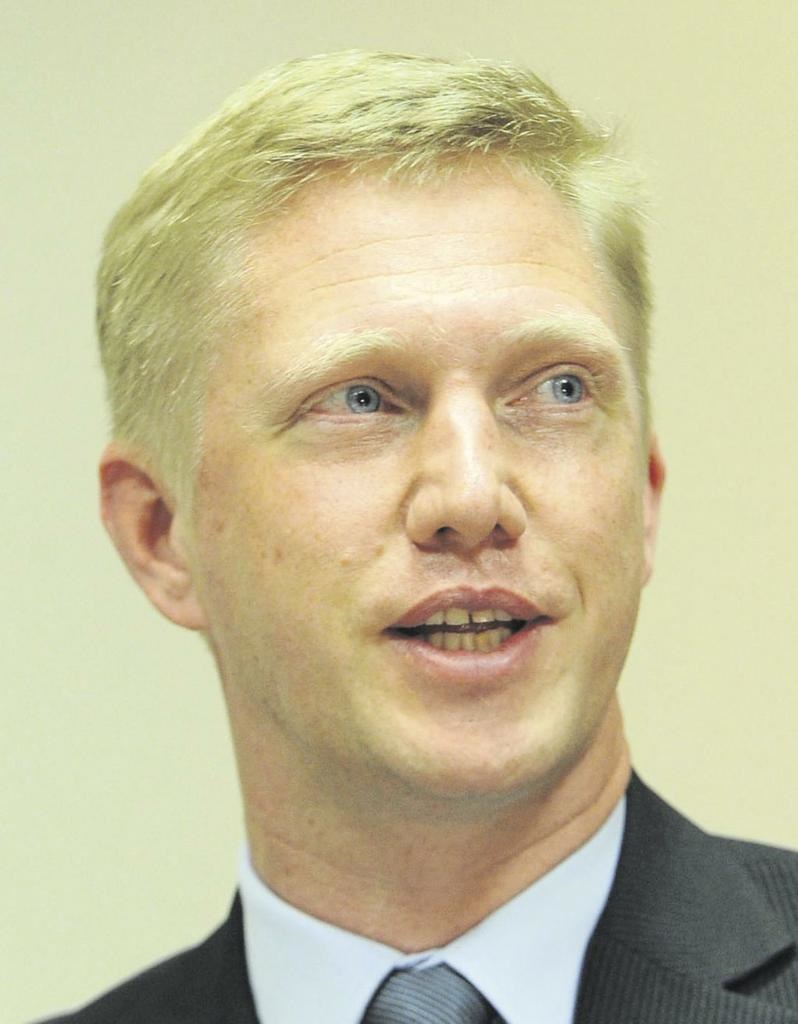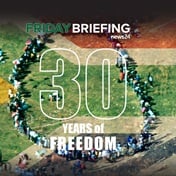
Cape Town - As Day Zero approaches in the Mother City, residents are coming to grips with living in a city without water.
"It would be catastrophic if we end up having to collect water at pods. It is going to be really unpleasant and difficult. We must not think that it is a viable solution for long. It is, at best, an emergency solution, and should be avoided at all costs," Cape Town safety and security mayoral committee member JP Smith said.
He sat down with News24 to explain exactly how the City will manage logistics when Day Zero arrives.
How many water collection sites will there be?
We have confirmed 149 water points thus far. We started out with a list of 200, but after assessing the sites we found that not all of them were viable. We now have a lead time of five weeks to get the sites going. One wants to pull the trigger on activating the sites at the last minute, because it's going to cost a lot of money to do this – about R200 million. You don't want to activate these sites unless it's absolute necessary.
How will you deal with congestion at the water sites?
We are designing the sites to be both vehicle and pedestrian friendly so that people can collect water in their cars or on foot. It is difficult to know how efficient those two individually are going to be. As we learn people's behaviour you might find sites that will have a drive through because it prevents people from having to find parking. That might have congestion knock-ons that will be very difficult to manage. So we will have staff at all these sites and manage it as we progress.
Non-essential departments are being freed up to work around the water sites and all of our law enforcement agencies, including the metro police, disaster management and fire department will be on site. There will also be first aid and emergency personal. The South African National Defence Force and SAPS have committed their resources to the sites.
One will have to see how this all pans out as there are some variables that are just impossible to predict. We are talking around IT to help with real time information linked to the water dashboards so that people can make informed decisions around where queue lengths are, etc.
Where will the water come from for the water collection sites?
It will come from the existing reticulation system, delivered in underground pipes, not by water tankers. It will be impossible for tankers to deliver water to the 50 to 72 taps at each site. At that stage the water supply to most areas will be shut down so there will be enough water pressure.
How much water will one person be able to collect?
People are allowed to collect up to a hundred litres per day for other people. It's capped at 100 litres so that people don't come and say they're collecting on behalf of 20 people. The reason for that is that the queues have to keep on moving. If you have to collect for more than 4 people you will have to make some prior arrangement.
What about people who can't physically go and collect their water?
Where people simply cannot come for water collection, and they cannot have a proxy collect it on their behalf, like people in old age homes, we will make arrangements for tankers to go deliver it. A communication campaign around this will start next week. Water deliveries will be limited so that the system is not abused.
It remains to be seen whether we all pull together around this time, find common cause, understand that we're all in this together and support each other. Cape Town is great around this and have displayed extraordinary cooperation and assistance after fires or floods in the past.
How will the water pods be regulated?
You will not be required to present identification. Anyone will be able to collect water as it is a basic human right. Not everyone has ID's and checking them and arguing about them will slow the queues down. The vehicle sites will be monitored closely so that people don't bring huge tanks and fill them. The sites are self-inhibiting in the sense that you can't physically carry 100s of litres away so that will also help.
Will you have to bring money to pay for your water?
Nobody will have to pay for water at the pod. You will collect your water for free. We are even trying to arrange for containers to be present at the sites. Disaster Risk Management has some of its own containers, not enough for everyone, but for the odd user that comes without a container. There are also companies and individuals that have donated new, fresh containers.
Will people have to collect at specific sites allocated to their neighbourhoods?
You can go to any site you want, whether that's the one nearest to your work or house. We will adapt the level of staff at sites as we see the usage patterns.
Will the collection sites run 24/7?
We will run the sites like we run the beaches during December holidays, where the person in charge of the site makes a call on when the site is quiet enough to be closed. If it needs to run later, it will. But that will require overtime budget so we will try and keep the times as compact as possible. People who can collect during the day should please do so, because there are people who work and will only be able to come before or after work.
Will businesses be able to stay open during the Day Zero scenario?
If businesses had to close – and many businesses are reliant upon water in one way or another – and ended up not being able to pay salaries, the vulnerability of those who are already struggling would dramatically deepen. Some of those job losses may become permanent. That's why it's important to leave all industrial and business areas connected for as long as possible.
As Day Zero approaches we will know how long we can keep them open, depending on how much water we have, but we will have to start phasing some of those areas out as well. So we are asking businesses to please try and become resilient and develop some sort of storage capability so that you can feed that water into your systems where possible.
We will be meeting intensively with businesses in the coming weeks.
We have also been talking to the police, who process some 5000 people per day, as well as the courts and prisons that will have to keep functioning. Provincial hospitals have done a lot of work and have a very detailed plan.
In the city centres it isn't possible to supply water for the business downstairs but not the residents upstairs. You have one pipe supplying that complex of water. Unfortunately, there are a certain number of reticulation zones in the city and they are either on or off, and they're blunt and imperfect tools. You can't go and draw other, specific boundaries because of social and economic reasons.
We will be able to announce detailed plans on exactly which areas will have water and which won't, because one will have to consider how much water it will take out of the total water consumption of the city. If we want to get ourselves down to 350 million litres per day, and we can get residential users down to 200 million litres, and business and industry down to a 150 million litres, then that's what we can coast by on to get an extension until rainfall is likely.
Is there still a way to avoid Day Zero?
Yes, if people save water the City can extend itself until mitigation measures set in and until our winter rains come.
If and when we do have rainfall, could it end the water crisis?
I think the phrase coined around the "new normal" is a reality. Cape Town is a water scarce area. We’ve known this for a long time. That is the case for the whole country. Some areas have reached this point before us, but there just hasn't been this level of media coverage. There are several municipalities that have been at a Day Zero situation for a while already.
The problem is that there is never money to fix these things. The reason we keep harping on about national government is because they have the budget to fix these things. Building new dams is a multi-billion rand project, which spans multiple municipal boundaries. It's not something a local authority would do on its own.
The City is responsible for the reticulation of the water or for distributing the water. National government is responsible for collecting the water in the dams and supplying that water. But as with what happened with the police and other national functions, the local municipality now has to step in with a very small and constrained budget and solve this mega-billion rand problem.
How will you make sure people don't waste water at their homes going forward?
Police blitz operations will be sent out to different suburbs every day from now on to make sure residents don't waste water. We will go to different suburbs to keep it equitable and fair and make sure everyone is treated the same.
The City is communicating now in much greater volume. We will have weekly media briefings as well as newspaper, radio and internet ads. City councillors will be briefed extensively next week so they can information to their communities. We are doing massive information sessions with neighbourhood watch groupings on 10 February.
How long will the Day Zero situation last?
It could be a week, or it could be as long as three months. I want it to be none. We must not allow the situation to get to a point where we are queueing for water. That means we must all be as responsible and frugal with our water right now. The augmentation schemes will be brought online as soon as possible but it will depend on the public. You either now save, or queue. Those are your two options.




 Publications
Publications
 Partners
Partners























